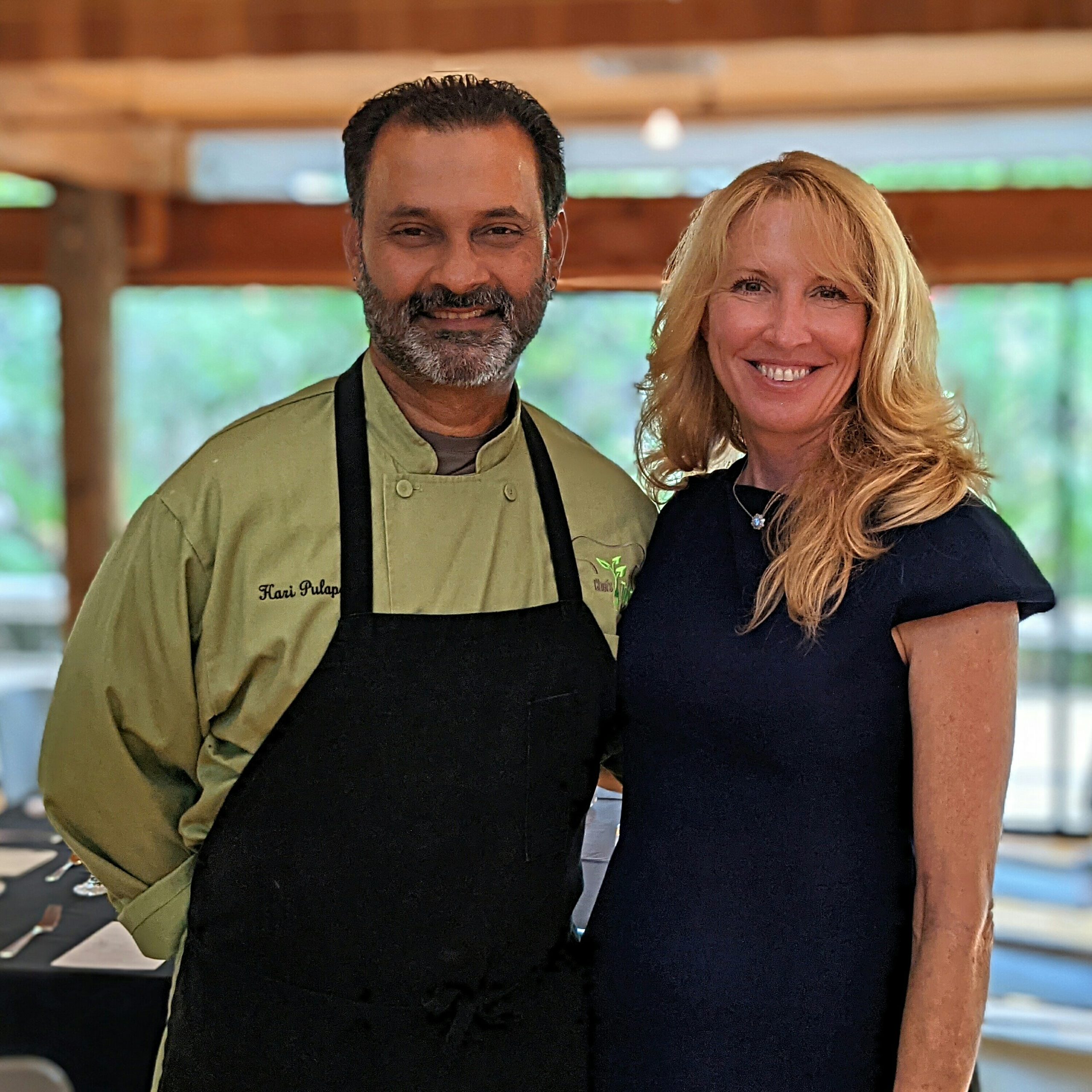Eat Well, Stay Healthy: Professor Hari Pulapaka and wife release new cookbook


Delicious meals, a full belly and a happy heart.
That’s the concept behind the recently released book “The Heart Healthy, Plant-Based Cookbook” written by Hari Pulapaka, PhD, associate professor of Mathematics and his wife, podiatrist Jenneffer Pulapaka.
“Good blood flow begins with what you put on your plate,” Jenneffer Pulapaka said. “Our cookbook provides the tools to improve blood flow, lower blood pressure and reverse heart disease through the power of plant-based nutrition.”
The Pulapakas have between four to five decades of combined experience in plant-based cuisine. Hari Pulapaka grew up a vegetarian while Jenneffer Pulapaka has led a vegetarian, almost vegan, lifestyle for years.
“The cooking experience comes from my background,” Hari Pulapaka said. “The book is evidence- and data-based. There are serious research papers based on why this approach works.”
Becoming Efficient in the Kitchen
A holistic guide to wellness, “The Heart Healthy, Plant-Based Cookbook” offers lifestyle medicine tips and guidance that aims to help consumers improve their overall well-being.
Every page turn immerses readers with information that provides the tools to turn them into healthy culinary experts.

“The cooking section begins with basically kitchen tips; how to be efficient in the kitchen, what tools are good to use, how to shop for healthy eating, how to look for labels that are not misleading and how to understand them,” Hari Pulapaka said. “The book touches on what it means to eat a whole food plant-based food and how to stay away from preservatives, as well as how to eat and how to cook using methods that professional chefs use at home with the intent of creating a food that is enjoyable and delicious.”
Hari Pulapaka, an active chef of 20 years, offers his skills of creating food within a diverse set of cuisines and how to combine flavors that utilize all kinds of ingredients. Jenneffer Pulapaka offers her medical expertise in every recipe through a “heart health note” that specifies why each ingredient used in the recipe is beneficial for heart health.
“I love being a physician who teaches patients to savor the taste of wellness with plant-based cooking,” she said. “They find that they can enjoy delicious meals that support their vascular health and vibrant lifestyle. It’s one plate at a time, and our plant-based cookbook is a step towards a delicious and healthier world.”
No salt? No Problem!
Salt is one of the most-used ingredients in the kitchen because it adds flavor to the dish. However, in order to improve heart health, “The Heart Healthy, Plant-Based Cookbook” offers recipes that intentionally have no added salt in them.

“Salt is something that heart patients have to mindfully reduce and sometimes, eliminate from their diet,” Hari Pulapaka said. “So, we took on the challenge of creating recipes that have absolutely no added salt but, have a lot of flavors still through the use of fresh herbs and fresh citrus ingredients that naturally have some small amounts of sodium in them.”
Excluding salt was not the only challenge the Pulapakas took on while creating the recipes for the cookbook. They also excluded the use of fats and cooking oils.
“Each recipe is cooked with the use of natural fats,” Hari Pulapaka said. “We utilize the richness of natural fats that come from nuts, grains and fruit like avocado. All these have natural fats that are good for you.”
A Cookbook To All
“The Heart Healthy, Plant-Based Cookbook” is inclusive to all, not only heart patients.
“It’s certainly meant for people to explore the delicious world of whole food, plant-based cooking for personal health, certainly for community health and obviously, for planetary health,” Hari Pulapaka said. “We all know that big animal diets are not sustainable diets for the planet in terms of what it takes to raise animals, grow them and process them.”
All ingredients used in the recipes are easily accessible, and all recipes are graded depending on the difficulty.
“The level one recipes are your everyday go-to recipes that use very few ingredients and within a matter of 20 or 30 minutes you can whip out a really delicious dish,” Hari Pulapaka said. “Then you have the level two and level three recipes that indicate there is a little bit more effort involved.”
– Andrea Mujica



